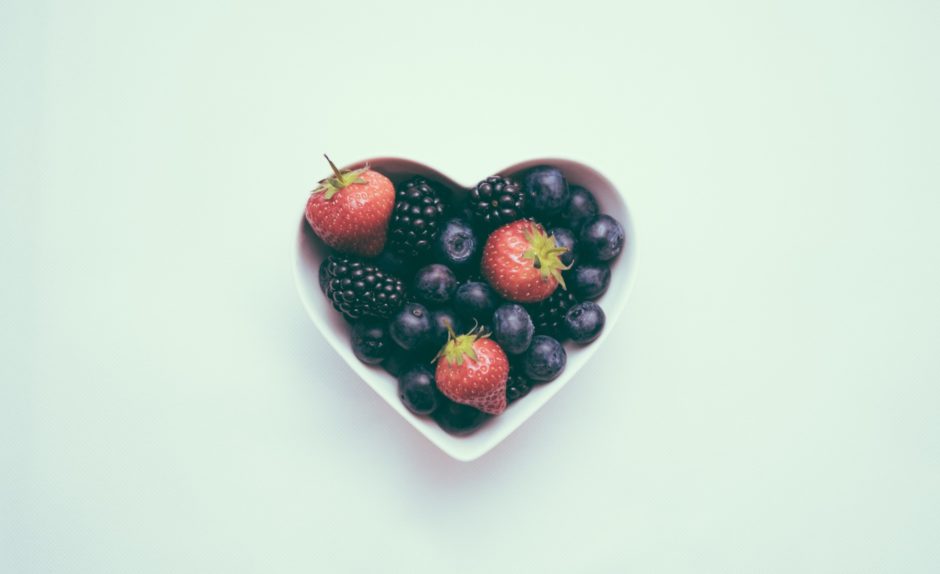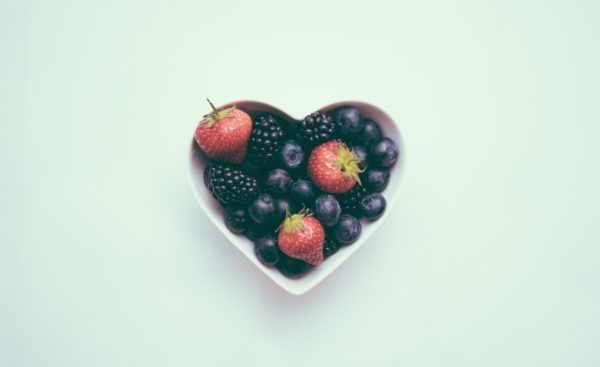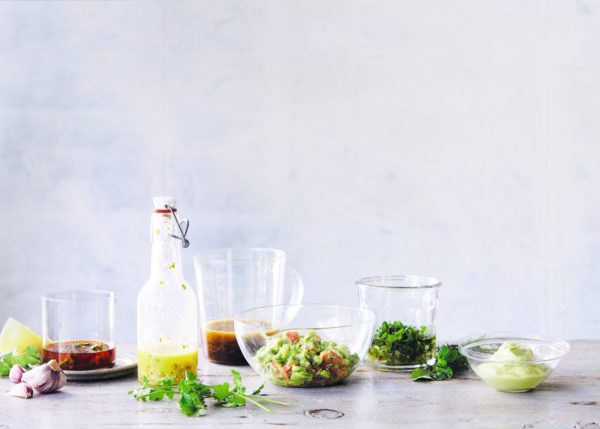
Mandy Sacher is a paediatric nutritionist and founder of Wholesome Child and she’s here to making kids and healthy eating work a little more seamlessly together. I sat down with Mandy for a chat about how to prepare nutritious meals when you’re time poor, the pantry staples every parent should have on hand and her quick and easy go-to meals for every meal of the day including snacks. If you’re scratching your head about what to feed your children for dinner tonight then read on because there are plenty of amazing ideas up ahead…
Parents are generally time poor so may not always have the time to prepare healthy meals for their children. What are some of your tips for making the process a little easier?
This is a topic that often comes up in my workshops and with clients in my clinic. We are all incredibly time poor—so it’s an understandable pain point for families who are keen to improve their nutrition sustainably and achievably.
Batch cooking freezer-friendly meals and snacks to have on hand goes a long way towards saving time, stress and money! A few hours of prep on a weekend will soon result in a freezer filled with nutritious, homemade ‘convenience’ food like spaghetti bolognaise and beef and veggie meatballs. I also suggest making a little extra each time you cook – for instance, when roasting vegetables or steaming cauliflower, save portions for the next night’s dinner or for use in other recipes.
Planning ahead is also crucial to success and ensuring that you have the right ingredients on hand. My book contains a range of different meal planners which is designed as a practical guide for busy parents. Getting the family and kids involved in the planning, shopping and cooking process is another top tip. Not only will it be a great way to spend quality time together, the family will feel included and more engaged with meals and fussy little eaters will be more likely to sample something that they have helped prepare (which is always a winner!)
What’s your idea of a healthy meal for kids? What should be on their plate?
Typically, I encourage meals to be varied, whole foods based and most definitely looked at as more than something to simply fill little tummies – rather it’s an opportunity to support healthy growth and development, improve their ability to concentrate and boost energy levels for physical activities.
Meals should contain a serve of quality protein, one to two serves of a slow-release carbohydrate, two to three vegetables (aim for a variation of colours for maximum phytonutrient benefit), a single serve of a healthy fat and a calcium-rich food. Include little ones in menu planning and involve them in the shopping and preparation – these are great ways to encourage enthusiasm and give them an element of limited choice. I generally recommend that fruit be included as a morning or afternoon snack, to keep blood sugar levels in check.
I’m quick to advise parents that fruit shouldn’t be used as a substitute for veggies – a topic that my book goes into detail around. Vegetables are nature’s insurance policy against disease and so it’s worth persisting with encouraging vegetable intake (as challenging as it may be!). Setting children up with a genuine appreciate of whole foods and vegetables is so important.
What are your top 5 healthy go-to…
Breakfasts:Pumpkin Spice Porridge , Scrambled Eggs with Leftover Veggies, Strawberry Beetroot Smoothie, Pumpkin, Banana and Cinnamon French Toast and nutritious Homemade Granola (I feature a few different recipes in my book)
Lunches: I’m a big fan of using leftovers for lunches – or dishes that have been bulk cooked and repurposed. Recipes like my Beef and Veggie Meatballs, Mini Salmon Quiches and Chickpea and Pumpkin Patties are ideal for this. Other great additions include: Broccoli Tots and Zucchini Crackers alongside some homemade tzatziki or some versatile veggie dipping sauce.
Dinners:Healthy Mac ‘n Cheese, Easy Fish Curry, Cheesy Cauliflower Pizza, Chicken Drumstick Casserole and Coconut Lamb Meatloaf.
Snacks:Trail Mix 4 Ways, Veggie sticks and crackers with Beetroot Hummus or Butternut Hummus, Tahini Carrot & Date Bliss Balls, Cheesy Polenta Chips and Apricot Coconut Muesli Bars.
What are some big issues that arise if a child isn’t on a healthy diet?
Little ones have very precise nutritional needs given their intense phases of physical and cognitive development. Deficiencies in core nutrients like protein can lead to poor muscle tone and development as well as fatigue. A low intake of iron rich foods can lead to anaemia, the most commong nutritional deficiency in childhood. Low levels of healthy fats in the diet can impact brain development and hormone levels.
A high fibre diet rich in whole grains and a diverse range of vegetables helps to ensure healthy immune function, gut health along with the alleviation of other unpleasant elements like constipation. It’s no secret that diets high in processed refined sugars and salts are detrimental – for both children and adults. Numerous scientific studies and research have linked obesity, disease and concentration issues to these unhealthy and imbalanced diets. Educating little taste buds early on to appreciate whole food in its natural state, free from additives, flavourings and preservatives go a long way towards training children to enjoy healthy food.
What’s one easy standby meal parents can turn to if they have to get dinner on the table in a short amount of time but haven’t really had time to prep?
Cheesy Cauliflower French Toast with Mushrooms is a great option and a fun way to get the kids involved. It’s packed with nutrition, quick and easy. Its versatility means that the mushrooms could be substituted for other vegetables like asparagus, pumpkin, or sweet potato.
What are some food staples all parents should always have on hand?
Fruit and vegetables: Aim for a good mix of colours to maximise the phytonutrient benefits and go for organic wherever possible (especially for produce you plan to eat with the skin on). Ready chopped veggie sticks and fruit stored in containers in the fridge make the perfect snack and lunch box addition. Going with what’s in season is often a good choice and don’t forget to include fresh herbs and spices like mint, basil and ginger. They are packed with essential oils and nutrition.
Dips, sauces and spreads: A selection of on-hand sauces like Homemade tomato sauce and dips like Tzatziki and vegan Beetroot Hummus are a versatile option to enjoy in sandwiches or with flatbread chips or veggie sticks. Betta than Nutella Chocolate Spread is a healthy alternative to commercial chocolate spreads and homemade almond and cashew nut butters are also a great option.
Dairy and non-dairy: Great options include almond milk, coconut milk and cream, organic A2 milk, unsalted butter, unsweetened natural yoghurt (cow, goat, sheep), homemade coconut yoghurt., good quality cheeses (organic where possible) – cheddar, parmesan, mozzarella, gouda and ricotta.
Protein: Protein tends to be a common nutrient missing from little ones’ diets so try to pack your fridge with as many different sources as possible. With meat, go for grass-fed and organic wherever possible. My book and website feature a range of recipe inspirations. Fish is among the best natural source of omega-3s, so try Atlantic mackerel, cod, flathead, trout or snapper. Wild or organic salmon fillets are perfect for San Choy Bow, rissoles and mini quiches. Organic eggs are a nutritious and versatile option to always have on hand, as are a wide selection of nuts and seeds like almonds, brazil nuts, pecans, hazelnuts, cashews, macadamia, pine nuts, chia, flax, sesame, sunflower and pumpkin seeds. Ideal for adding to salads or using in trail mix for an instant boost of protein and healthy fats.
Snacks/biscuits/bread: Pack the pantry with delicious and nutritious alternatives to sugar-laden biscuits such as my Apricot & Coconut Muesli Bars, Gluten Free Honey and Coconut Biscuits and High Protein Peanut Butter Biscuits. On the topic of bread, I believe that making the switch to a high quality whole grain option is one of the most important changes you can make to your family’s diet.
How can parents teach their children to establish healthy eating habits?
Positive role modeling is one of the most important and powerful influencers in a child’s healthy eating habits. Little ones are sponges for information and are incredibly impressionable. Seeing their other family members enjoying healthy wholefoods, celebrating their health, their bodies and discussing how important wellbeing is, are all crucial. In addition to this, being involved in food preparation processes and knowing to expect nutritious foods at snack and mealtimes will guide them on a lifelong path of health and wellbeing. It’s definitely more of a marathon than a race!
To learn more about Mandy Sacher please visit the Wholesome Child website. Her book “Wholesome Child: A Complete Nutrition Guide and Cookbook” is available to purchase online and through iTunes, and you can connect with Mandy on Instagram and Facebook.




